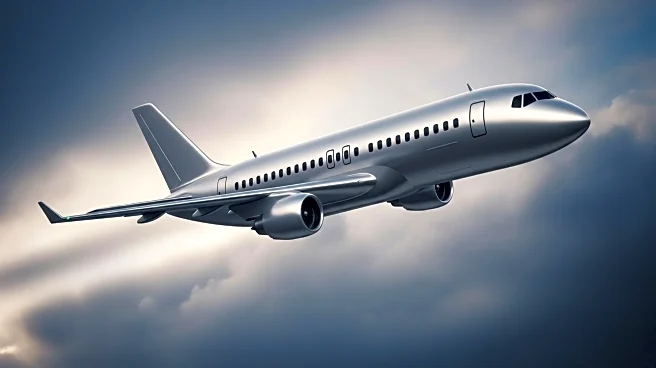What's Happening?
Spirit Airlines has filed for bankruptcy protection again, months after emerging from a Chapter 11 reorganization. The airline plans to continue operations during the restructuring, allowing passengers to book flights and use existing tickets and loyalty points. CEO Dave Davis acknowledged the need for further restructuring to better position the airline for future challenges. The company faces substantial doubt about its ability to remain operational over the next year due to adverse market conditions, including poor demand for domestic leisure travel and uncertainties in business operations. Spirit Airlines has struggled since the COVID-19 pandemic, accumulating over $2.5 billion in losses since 2020 and carrying $2.4 billion in long-term debt. The airline is under pressure from larger carriers offering low-cost options and is attempting to attract more upscale travelers with new tiered pricing.
Why It's Important?
The bankruptcy filing highlights the ongoing challenges faced by budget airlines in the current market environment. Spirit Airlines' financial struggles reflect broader issues in the airline industry, including rising operational costs and competitive pressures from larger carriers. The company's efforts to restructure and adapt to changing consumer preferences are crucial for its survival. The situation impacts employees, passengers, and stakeholders, as Spirit attempts to navigate financial instability while maintaining service. The airline's potential sale of assets and restructuring plans could influence market dynamics and competition among budget carriers.
What's Next?
Spirit Airlines plans to implement cost-cutting measures, including furloughing pilots and downgrading captains, based on expected flight volumes in 2026. The company is considering selling aircraft and real estate to raise cash. These actions are part of Spirit's strategy to stabilize its financial position and adapt to market conditions. The airline's restructuring efforts will be closely watched by industry analysts and competitors, as they may affect market competition and pricing strategies among budget carriers.
Beyond the Headlines
Spirit Airlines' bankruptcy filing raises questions about the sustainability of ultra-low-cost carriers in a competitive market. The airline's attempt to attract upscale travelers with tiered pricing reflects a shift in strategy to diversify its customer base. The situation underscores the importance of adaptability and innovation in the airline industry, as carriers face evolving consumer preferences and economic challenges. The outcome of Spirit's restructuring efforts could influence future business models and strategies within the sector.










